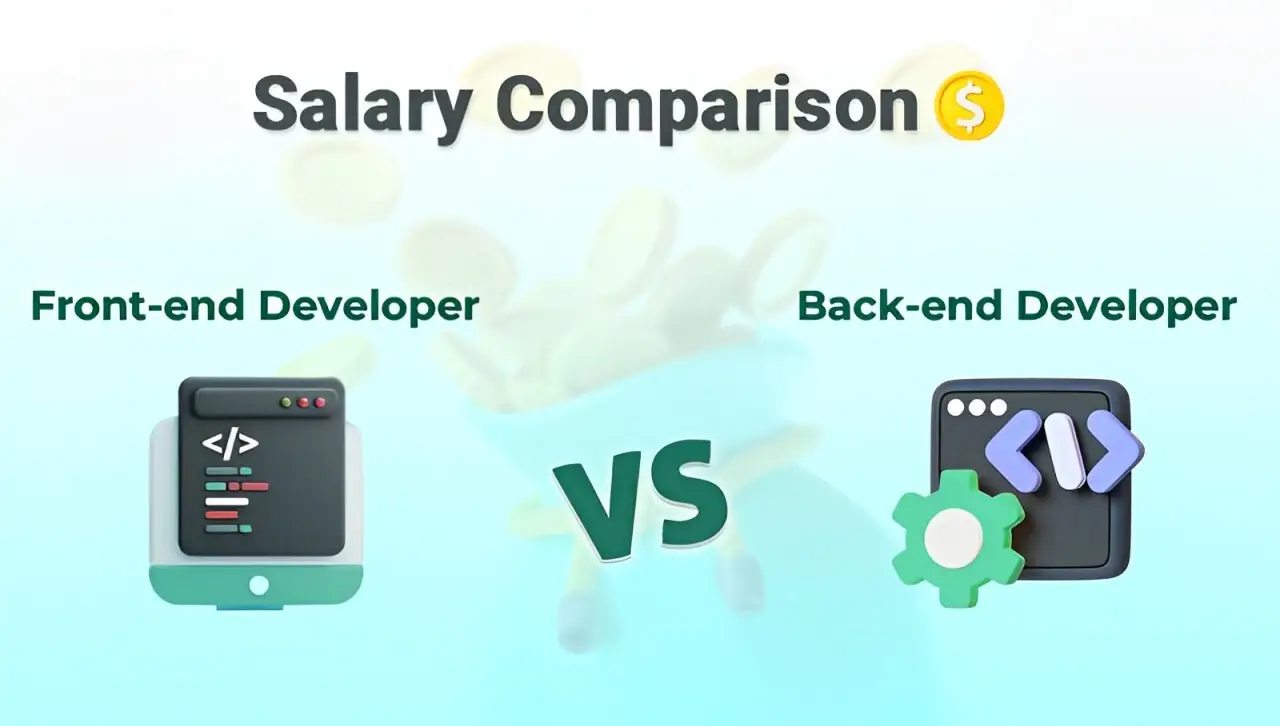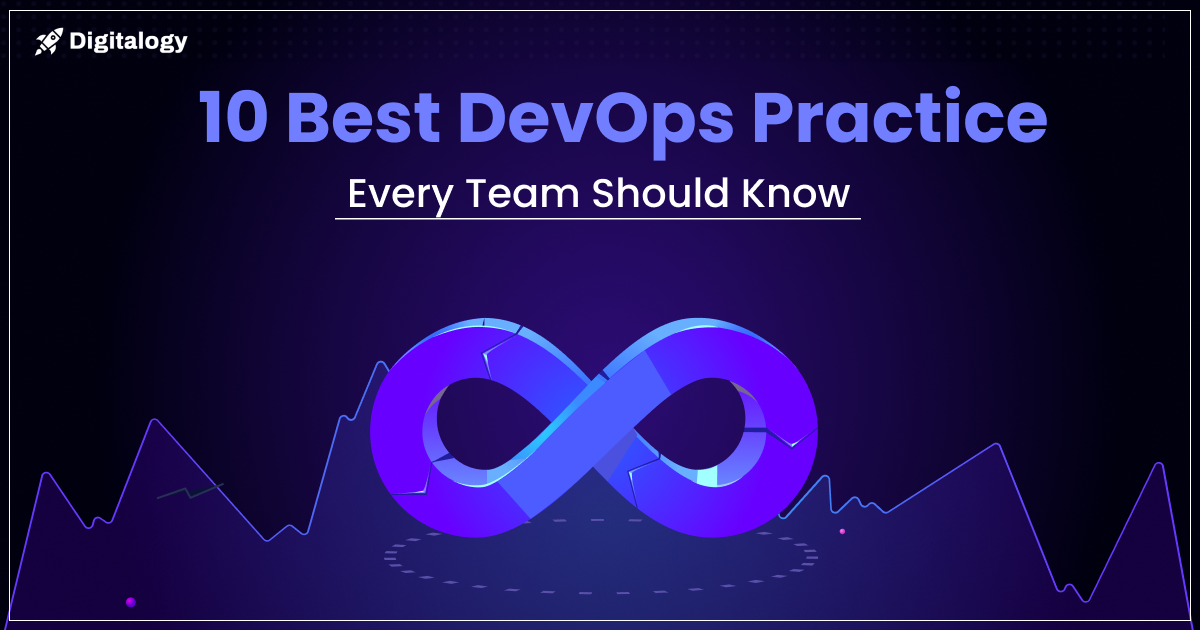In the field of web development, the contributions of front-end and back-end developers play a crucial role in shaping the digital experiences that users engage with daily. This article embarks on an extensive exploration of the salary dynamics between front-end and back-end developers in the USA.
By delving into responsibilities, geographical influences, and skill demands, we aim to decipher the intricate web of compensation in the tech ecosystem.
Differentiate the Front-end and Back-end Developers’ Responsibilities
Front-end Developers
Front-end developers serve as the designers of user interfaces, emphasizing the visual and interactive elements of websites. They breathe life into designs using languages such as HTML, CSS, and JavaScript, ensuring a seamless and captivating user experience.
- User Interface (UI) Design
Front-end developers concentrate on crafting visually engaging and user-friendly interfaces, employing HTML for structure, CSS for styling, and JavaScript for interactivity to guarantee a favorable user experience.
- Cross-Browser Compatibility
Ensuring a uniform experience across various browsers is a fundamental responsibility. Front-end developers address compatibility issues to guarantee that websites function flawlessly for all users.
- Responsive Design
Because there are so many different kinds of devices, front-end developers use responsive design techniques. By doing this, websites are guaranteed to adjust to various screen sizes with ease, offering the best possible viewing experience.
- Collaboration with Designers
UI/UX designers and front-end developers work closely together. Design mockups are translated into functional interfaces by them, guaranteeing that the visual components correspond with the desired user experience.
- Client-Side Scripting
Using frameworks like React, Angular, or Vue.js, front-end developers implement client-side scripting for dynamic and interactive web pages. This includes features like form validation, real-time updates, and animations.
Back-end Developers
Conversely, back-end developers handle server-side logic, databases, and the overall functionality of web applications. They employ server-side programming languages like PHP, Java, and Python or Python to handle and process data safely.
- Server-Side Scripting
Back-end developers focus on server-side scripting using languages like Python, Ruby, PHP, or Java. They handle data processing, manage requests, and execute server-side logic.
- Database Management
Effective data management, retrieval, and archiving constitute essential back-end tasks. To guarantee data integrity, back-end developers utilize databases such as MySQL, PostgreSQL, or MongoDB.
- API Development
Application Programming Interfaces (APIs) enable communication between the front end and back end. Back-end developers design and implement APIs, facilitating data exchange and integration with external services.
- Security Implementation
Communication between the front-end and back-end is made possible by application programming interfaces, or APIs. APIs are designed and implemented by back-end developers, who make it easier to integrate external services and exchange data.
- Scalability and Performance Optimization
Back-end developers plan systems to scale as apps do. Essentially, back-end developers manage the background tasks that enable dynamic and data-driven apps to run smoothly, while front-end developers concentrate on designing visually appealing user interfaces. In order to provide a thorough and efficient digital experience, these two jobs must work together.
Average Salary of Front-end or Back-end Developers in the USA
Based on Location
In the USA, the compensation landscape for front-end and back-end developers varies by location. In Silicon Valley, a tech powerhouse, senior developers command salaries surpassing $150,000 annually. Tech-centric cities like Seattle and New York offer competitive packages, albeit slightly lower than Silicon Valley.
Developers in states such as Texas and Colorado enjoy favorable compensation. Specialized skills, like React.js or Node.js expertise, elevate salaries. Freelancers, irrespective of location, can set hourly rates on platforms like Upwork, providing flexibility. Geographical location significantly influences developer salaries. As of recent data:-
- In Silicon Valley, California, front-end developers earn an average of $118,000 annually, while back-end developers command around $126,000.
- In Austin, Texas, the figures are $98,000 for front-end and $105,000 for back-end developers.
Based on Experience
Experience is a key determinant of front-end and back-end developer salaries in the USA. Entry-level developers with 0-2 years of experience can expect salaries ranging from $65,000 to $85,000 annually.
Mid-level developers with 3-5 years of experience command higher compensation, typically in the range of $95,000 to $150,000. Seasoned professionals with over a decade of expertise often surpass $120,000, reflecting the value placed on experience in the tech industry.
- Entry-level front-end developers in the USA can expect an average salary of $72,000, while their back-end counterparts earn slightly higher at $76,000.
- With 5-9 years of experience, front-end developers see an increase to $90,000, while back-end developers reach an average of $96,000.
- Seasoned professionals with 10+ years in the industry witness front-end salaries peaking at $110,000 and back-end salaries at $120,000.
Based on Company Size
Company size significantly influences the average salaries of front-end and back-end developers in the USA. Large enterprises, with extensive resources, offer competitive compensation packages for both roles.
The scale of operations, financial capabilities, and the demand for specialized skills contribute to the variation in compensation. While large enterprises can afford to provide robust packages, smaller companies may leverage additional benefits or stock options to attract and retain talent, highlighting the impact of company size on the salary landscape for developers.
Company size is another variable impacting salaries:-
- In large corporations, front-end developers may earn $105,000 on average, and back-end developers $113,000.
- Small to medium-sized enterprises offer slightly lower averages, with front-end salaries at $95,000 and back-end salaries at $102,000.
Based on Responsibilities
The average salary of front-end and back-end developers is intricately linked to their responsibilities. Front-end developers focusing on design, UI/UX, and client-side development can expect salaries ranging from $60,000 to $120,000.
In contrast, back-end developers responsible for system architecture, database optimization, and scalability command salaries in the same range. The nuanced salary structure reflects the significance of their roles, with both front-end and back-end developers having the potential to earn competitive compensations based on their unique responsibilities.
Salary ranges for front-end and back-end roles are influenced by the following:-
- Experts in both front-end and back-end technologies, full-stack developers frequently fetch better compensation. In the USA, full-stack developers make, on average, $110,000 a year.
Salary as a Freelancer Based on Different Websites
Freelancers have the flexibility to set their rates, with variations across platforms:-
- On Upwork, front-end freelancers charge an average of $50 per hour, while back-end freelancers ask for around $60 per hour.
- Freelancer.com reports similar figures, with front-end rates at $45 per hour and back-end rates at $55 per hour.
Career Growth vs. Salary Growth
The career trajectory of front-end and back-end developers presents an interesting dynamic. Front-end developers often experience substantial career growth in design, UI/UX, and client-side development, with a focus on responsive design principles.
On the other hand, back-end developers find career growth in system architecture, database optimization, and scalability. While both roles offer incremental salary growth with experience, front-end developers may witness spikes with specialized skills like React.js or Angular, while back-end developers experience boosts with expertise in server-side languages and system architecture. While career growth and salary growth often align, they are distinct tracks:-
- Advancing one’s career might involve taking on leadership roles, specializing in niche areas, or broadening skill sets.
- Market demand, negotiation skills, and industry trends influence salary growth.
| Aspect | Front-End Developers | Back-End Developers |
| Entry-Level Salary | $60,000 – $80,000 | $60,000 – $80,000 |
| Mid-Level Salary | $90,000 – $110,000 | $90,000 – $110,000 |
| Senior-Level Salary | $120,000 and above | $120,000 and above |
| Career Growth Opportunities | Abundant in design, UI/UX, and client-side development | Opportunities in system architecture, database optimization, and scalability |
| Skill Development Emphasis | UI/UX design, JavaScript frameworks (React, Angular), responsive design principles | Server-side languages, databases, system architecture principles |
| Salary Growth with Experience | Incremental with experience, spikes with specialized skills | Incremental with experience, spikes with specialized skills |
| Salary Growth with Specialization | Significant increase with specialized skills like React.js Angular, or Vue.js | Significant increase with specialized skills like Node.js, Java Spring, or Python Django |
Which Front-end Development Skills Are Paying Well?
Salary levels for front-end engineers with in-demand abilities can rise. Proficiency in frameworks like React.js, Angular, and Vue.js is crucial, reflecting the industry demand for expertise in modern JavaScript libraries. Additionally, expertise in responsive design principles, UI/UX design, and knowledge of front-end languages contribute to elevated salaries.
Front-end developers with a robust skill set are well-positioned to capitalize on the competitive landscape, with salaries ranging from $90,000 to $120,000 and beyond. Along with this, there are certain skills of Front end developers that often command higher salaries:-
- Expertise in JavaScript Frameworks: Proficiency in frameworks like React, Angular, or Vue.js is highly valued, with salaries reaching $120,000 on average.
- UI/UX Design Skills: Developers skilled in creating compelling user interfaces and optimizing user experiences earn salaries exceeding $110,000.
- Responsive Design: Knowledge of responsive design principles correlates with higher salaries, often reaching $115,000.
What Back-end Developer Skills Demand High Salary?
Back-end developers commanding high salaries possess a skill set tailored for system architecture, database optimization, and scalability. Expertise in server-side languages such as Java, Python, or Node.js is instrumental, as is proficiency in frameworks like Spring or Django.
These skills are in high demand, leading to lucrative salaries ranging from $90,000 to $120,000 and above for experienced back-end developers with the right expertise. Along with this, there are specific skills for Back-end developers that are also in high demand:-
- Server-side Scripting Languages: Mastery of languages like Python, Java, or Ruby correlates with salaries exceeding $125,000 on average.
- Database Management: Expertise in managing databases, especially in the context of scalability and security, results in salaries reaching $130,000.
- Cloud Computing Knowledge: Back-end developers familiar with cloud computing platforms like AWS or Azure often command salaries upwards of $135,000.
Conclusion
While both front-end and back-end developers are indispensable in crafting the digital realm, their remuneration reflects the intricate balance between artistry and technical prowess. As the tech landscape evolves, developers must navigate these nuances, constantly updating their skill sets to stay relevant and maximize their earning potential.







